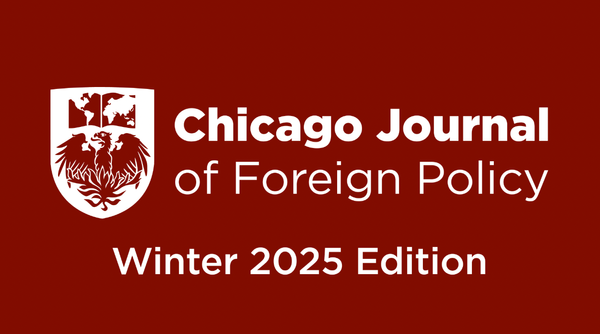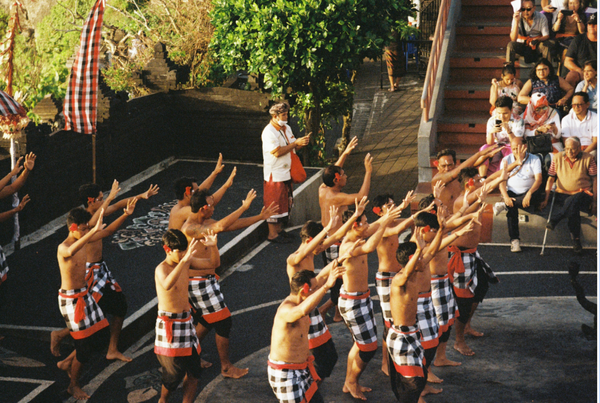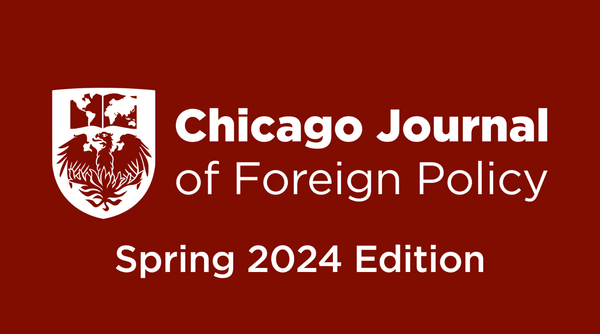The Philosopher King’s Policies: Assessing the Long-Term Impact of Mano Dura on El Salvador and the Americas

By Henry Jacobs, University of Chicago
In 2017, then 36-year-old mayor of San Salvador, Nayib Bukele threw an apple at a member of his former party in a closed-door meeting. He was expelled from the party, only to create his own party, Nuevas Ideas, and win the 2019 El Salvador Presidential Election.1
Now 43, the self-proclaimed “Philosopher King” brings new ideas to the presidency in El Salvador. Bukele delivered on many of his campaign promises, such as Mano Dura, which translates to “Iron First” but also refers to a set of tough-on-crime policies.2 With his Territorial Control Plan (TCP), he rebranded a nation once known as the murder capital of the world by issuing controversial state of exception decrees, creating a ‘mega-prison,’ and detaining upwards of 80,000 suspected gang members without warrants.3 Despite Bukele’s ~90% approval rating and declining homicide rate, the rise of Nuevas Ideas and their methods of implementing these policies raise questions about long-term political, economic, and social security in El Salvador and Central America.4
In February 2020, Nayib Bukele led armed forces into the National Assembly and demanded immediate approval for a 109-million-dollar multilateral loan to execute his TCP. In the 2021 elections, Nuevas Ideas won 56 out of the 84 assembly seats and promptly ousted the existing attorney general and replaced five Supreme Court justices. In March 2022, in accordance with the TCP, the Assembly issued a month-long state of exception that suspended certain constitutional rights, extended the detention period for suspects in custody, and increased surveillance with a police-advertised system for citizens to anonymously report their neighbors linked with gangs. The state of exception has been extended by the Nuevas Ideas-controlled Assembly every month since.
Bukele’s policies not only pull El Salvador’s government further from democracy but also set a dangerous precedent for the future of policymaking in El Salvador, according to human rights organizations. Amnesty International described the long-standing state of emergency as the “institutionalization of human rights violations” and called for “comprehensive policies that respect human rights and seek long-term solutions.” Further, they called on the international community to “respond in a robust, articulate and forceful manner, condemning any model of public security that is based on human rights violations.”5
However, the international community is split on the issue of condemning Bukele and his party. Bukele’s Mano Dura reforms led neighboring countries to adopt similar policies, for better or worse. Honduras and Ecuador both have active states of exceptions, while politicians and citizens alike in Costa Rica and Guatemala have expressed support for Bukele.6 In contrast, the Biden Administration has taken a more ambiguous stance on the issue. In 2021, Kamala Harris condemned Nuevas Ideas’s removal of the existing attorney as undemocratic and Joe Biden refused a meeting with Bukele in Washington.7 But closer to the 2024 US Presidential Election, the administration sent a high-level delegation to recognize the inauguration of Bukele.8 Inadvertently or not, instances of blatant human rights violations have occurred in El Salvador because of the TCP. AP News reported on a family whose mother was detained on charges of “illegal gathering,” leaving the children and grandparents struggling to make ends meet.9 Among the 1% of the El Salvador population jailed under the state of exception, human rights organizations suggest that thousands of innocent citizens are detained unjustly in overcrowded prisons, in violation of international human rights law.
These violations have not only social impacts but also economic ones. While it’s not possible to precisely predict their long-term economic ramifications for El Salvador, Nueva Ideas’ controversial policies certainly contribute to heightened economic risk, which, in turn, can impact the overall standard of living of El Salvadorians. Nobel laureate James Robinson suggested that inclusive institutions—those that ensure property rights, rule of law, broad participation in government, and thereby encourage economic investment—tend to maintain stronger economies than exclusive institutions, which do the opposite.10 Although El Salvador should not be considered completely exclusive, recent events and reports suggest that Nuevas Ideas and Bukele have placed the Salvadoran government institutions on a trajectory of exclusivity by consolidating power within the executive branch. If these exclusive practices continue to heighten and persist, long-term economic prosperity may be harder to attain, and in turn, El Salvadorean’s standard of living may stagnate.
Despite the efforts to reduce crime and increase foreign investors’ confidence to spur economic growth, Moody’s, a company that evaluates the creditworthiness and financial stability of countries, recently ranked El Salvador’s credit as Caa1, which indicates substantial risk. They stated that “the improved security situation has not yet led to a marked shift in foreign direct investment (FDI) or the overall level of gross investment in the economy.” They also cited “weak institutions and governance, as well as relatively high susceptibility to event risk,” for the poor rating.11 As evidenced by this report, Bukele’s reforms continue to threaten the rule of law and, in turn, systematically inhibit their ability to borrow money, attract foreign investment, and therefore promote growth in El Salvadoreans’ standard of living.
The same goes for the aspiring tough-on-crime Central American countries. Despite Mano Dura’s widespread popularity, the Center for Strategic and International Studies suggested that “as these exceptions become increasingly routine, they risk fostering authoritarian rule under the guise of maintaining public security.”2 This is especially concerning for countries and politicians with historical tendencies of authoritarianism as it heightens the risk of future human rights violations unrelated to controlling crime.
These popular Mano Dura reforms that suspend constitutional rights and threaten the rule of law carry an outsized risk of consolidating and crystallizing power in democratic governments, which can systematically threaten personal freedoms and long-term economic and social prosperity. So, while Mano Dura reforms may carry quick, short-term benefits, the long-term political, economic, and social risks these policies bring need to be curbed through scrutinous and periodical reassessments of Mano Dura’s usage and worth.
References
- King, T.. "Nayib Bukele." Encyclopedia Britannica, November 13, 2024. https://www.britannica.com/biography/Nayib-Bukele.
- Hernandez-Roy, Christopher, and Rubi Bledsoe. “Democracy Dies under Mano Dura: Anti-Crime Strategies in the Northern Triangle,” April 12, 2023. https://www.csis.org/analysis/democracy-dies-under-mano-dura-anti-crime-strategies-northern-triangle.
- Salvador, Vera Bergengruen / San. “How Nayib Bukele’s ‘Iron Fist’ Has Transformed El Salvador.” TIME, August 29, 2024. https://time.com/7015598/nayib-bukeles-iron-fist-el-salvador/.
- CID Gallup (@cidgallup), “Los 5 Mandatarios Latinoamericanos con Mejor Opinión de sus labores”, X, November 1, 2024, 6:41PM, https://x.com/cidgallup/status/1852496127800528997
- Amnesty International. “The Institutionalization of Human Rights Violations in El Salvador,” March 27, 2024. https://www.amnesty.org/en/latest/news/2024/03/el-salvador-two-years-emergency-rule/.
- Rubio, Juliana, and Andrea Casique. “The Burgeoning Regional Appeal of Mano Dura Crime-Fighting Strategies,” October 29, 2024. https://www.csis.org/analysis/burgeoning-regional-appeal-mano-dura-crime-fighting-strategies.
- The White House. “Remarks by Vice President Harris at the Virtual Washington Conference on the Americas.” The White House, May 5, 2021. https://www.whitehouse.gov/briefing-room/speeches-remarks/2021/05/04/remarks-by-vice-president-harris-at-the-virtual-washington-conference-on-the-americas/.
- AP News. “US Dampens Criticism of El Salvador’s President as Migration Overtakes Democracy Concerns,” June 1, 2024. https://apnews.com/article/el-salvador-inauguration-bukele-migration-df66c3f2a1ed05f62c2646653f1aaa16.
- AP News. “The President Jailed 1% of El Salvador’s Population. Their Children Are Paying the Consequences,” February 9, 2024. https://apnews.com/article/el-salvador-bukele-central-america-crime-gangs-60c3a34c571dfdbdf0a203deb85abf71.
- “2024 Nobel Laureate Explains What Makes Countries Fail or Succeed: Big Brains Podcast with James Robinson | University of Chicago News.” Accessed November 16, 2024. https://news.uchicago.edu/big-brains-podcast-2024-nobel-laureate-explains-what-makes-countries-fail-or-succeed-james-robinson.
- “Moody’s - Credit Ratings, Research, and Data for Global Capital Markets.” Accessed November 16, 2024. https://www.moodys.com/research/Moodys-Ratings-upgrades-El-Salvadors-ratings-to-Caa1-from-Caa3-Rating-Action--PR_489596.





